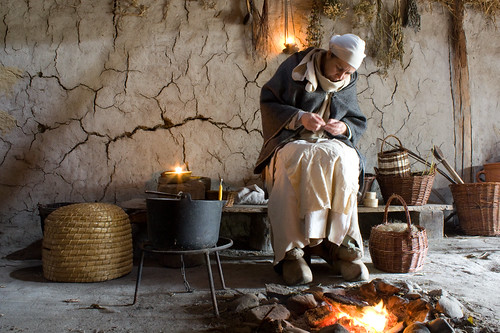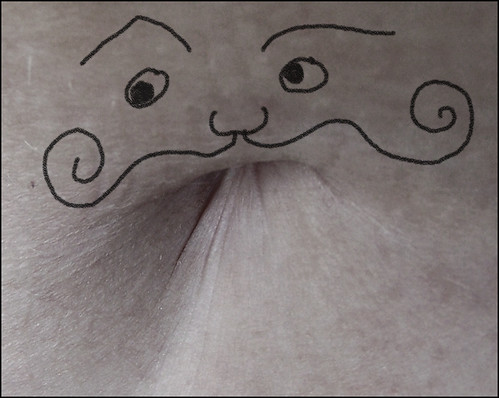 medieval beekeeper by hans s (cc by-nd)
medieval beekeeper by hans s (cc by-nd)
Another thing to consider is how dark homes were in the Medieval period. There was not a lot of window glass. Homes were often very smokey and the various sources of light were inadequate. Clutter seems to have become prevalent during the late Georgian/early Victorian era as the lighting improved and manufacturing made extraneous possessions affordable. Until then you did a lot of groping around in the dark. Kitchens were often not part of the main house, as were workshops, weaving galleries and cloisters, places where work could be done outside where there was sufficient light to do it. This probably discouraged them from having a whole lot of stuff on display inside.
Jane the Brown offers a great overview of possibilities, conditions and practicalities surrounding xarnop's question, "Are there any surviving evidence of household decorations from medieval times in Europe?"
 Snotolf [Cyclopterus lumpus] MPM.HB.03961
Snotolf [Cyclopterus lumpus] MPM.HB.03961






